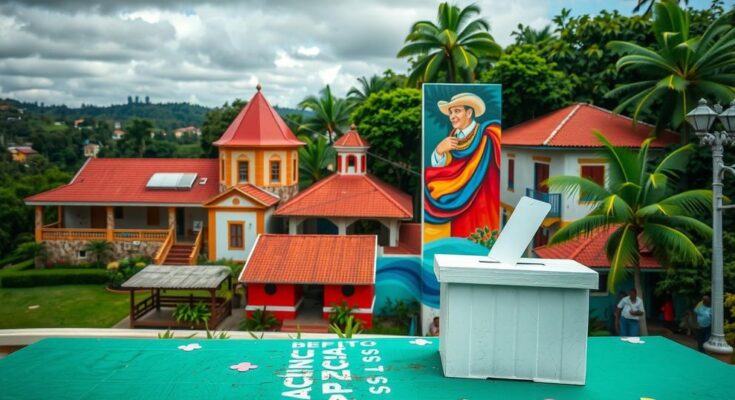Honduras is holding primaries for candidates from three main political parties ahead of the general election. Voter frustration is high due to persistent security and economic challenges. President Xiomara Castro’s complicated relationship with the U.S. and candidates’ varied backgrounds reflect the polarized political environment.
Honduras is currently conducting primaries, enabling voters to select candidates from the three major political parties for the upcoming general election set for November. Amidst a backdrop of disillusionment regarding both security and economic conditions, the election reflects the citizens’ growing skepticism towards political leaders across the spectrum who have failed to create significant improvements in these areas.
As the nation prepares for the primaries, tensions are evident, particularly in light of President Xiomara Castro’s complicated relations with the United States. As the first female leader of Honduras from the leftist LIBRE party, President Castro had raised concerns about U.S. military access to an air base and contemplated withdrawing from an extradition treaty that previously implicated her predecessor in drug trafficking. Castro and her extended family have faced allegations regarding connections to drug traffickers, which further complicates her administration’s legitimacy.
The primaries will present voters with multiple candidates seeking to continue or shift the political direction of Honduras. Rixi Moncada, Castro’s defense minister, enjoys the President’s backing, despite criticism of her dual role overseeing military security for the electoral process while simultaneously campaigning. In contrast, Ana García, aspiring for the National Party of Honduras nomination, seeks to bring back a past characterized by her husband’s controversial leadership.
The Liberal Party of Honduras is witnessing a competitive race between Salvador Nasralla and Jorge Cálix. Nasralla, a former ally of Castro, once helped her achieve victory in the 2021 presidential election but later distanced himself due to perceived exclusion within her government. On the other hand, Cálix, once a member of Castro’s LIBRE party, seeks to implement stringent security policies akin to those favored by other regional leaders, emphasizing the urgent need for effective solutions to national issues.
In total, 10 candidates are vying for the nominations of the three leading parties, while smaller parties will determine their candidates at different intervals. Approximately 5.8 million Hondurans are entitled to vote, yet participation has historically been low due to fears regarding employment prospects linked to party affiliation. Political analyst Miguel Cálix expressed concerns about the primaries’ integrity, noting a history of irregularities that have marred these electoral exercises.
The situation in Honduras is dire, with citizens facing ongoing challenges related to security, employment, and healthcare. High unemployment and criminal violence contribute to a significant migration trend, as many residents seek better opportunities abroad. Political analyst Luis León underscored the importance of the primaries, arguing that they are crucial in determining which candidates could adequately address national issues, emphasizing the need for substantial proposals from candidates in order for the electorate to have meaningful choices in the general election.
In summary, the primaries in Honduras are pivotal in shaping the upcoming general elections, which reflect significant dissatisfaction among voters regarding security and economic conditions. As diverse candidates emerge in this politically charged atmosphere, the outcome will depend on their ability to present credible solutions to pressing national issues. The primaries serve not only as a selection mechanism but also highlight the urgency for effective leadership in addressing the challenges facing the nation.
Original Source: www.kob.com




